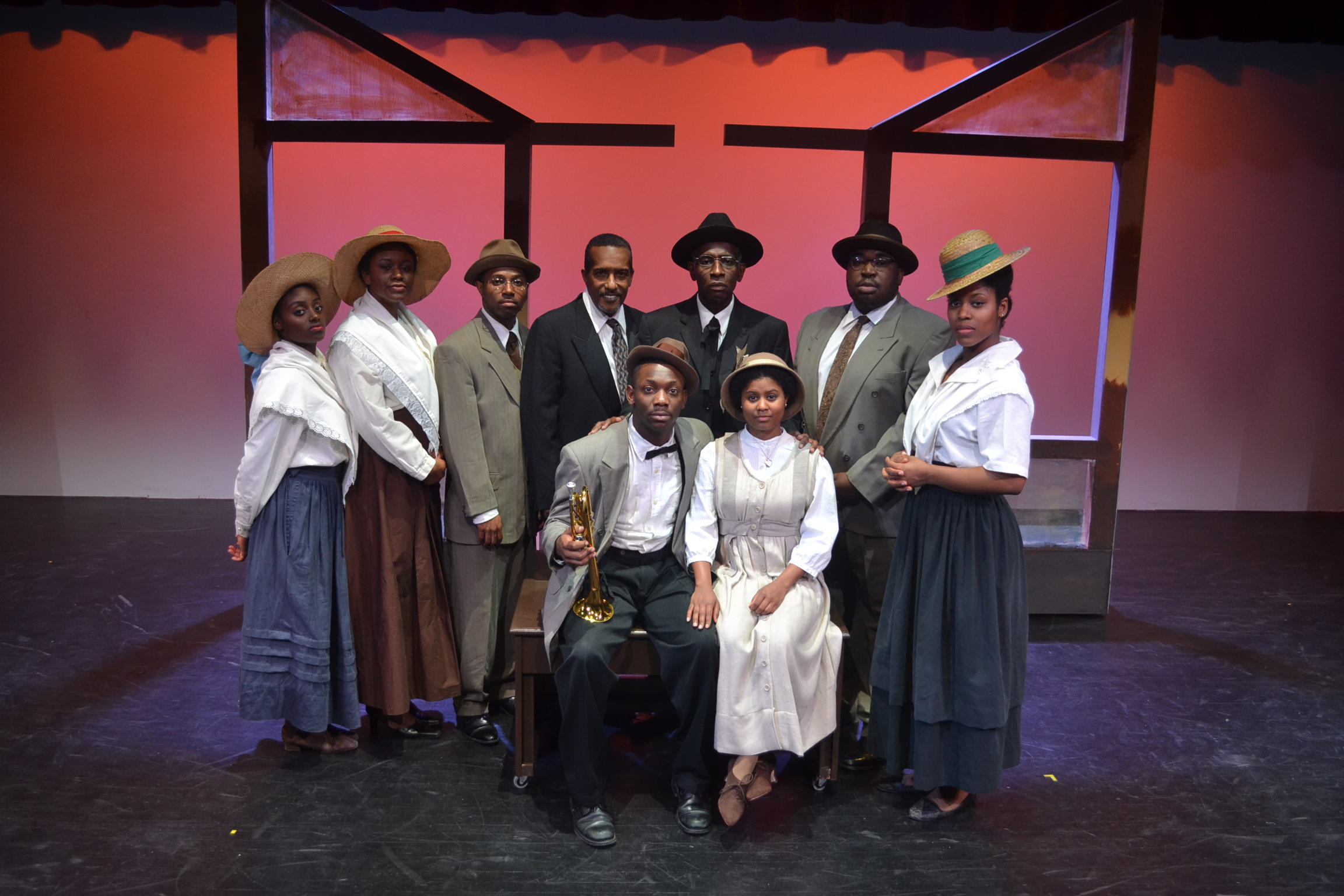Between the 1910s and the 1970s, nearly six million African Americans migrated out of the rural south and into northern cities. Why? Because, as Michael Bradford’s representation of Chicago Defender founder Robert Abbott says, in 1919 northern cities like Chicago presented African Americans with the “possibility of living in the full of one’s own humanity.” Michael Bradford’s Migration captures this spirit as it takes a personal look at the movement of millions.
Migration, in its premiere run, is the last production of eta Creative Arts Foundation’s 2015–2016 season. Written by Bradford and directed by Kemati Porter, the play tells the love story of Lillian Stride and Noble Johnson, two young African Americans living in Jackson, Mississippi, as well as the story of their migration to and time in Chicago. Lillian, an ambitious young journalist and the daughter of her town’s pastor, wants to leave Jackson for “possibility”—the possibility of fulfilling her dreams, of a better life unattainable in Jackson.
She is matched by Noble Johnson, a young horn player who woos Lillian with his music, and although satisfied with his life in Jackson, marries Lillian and follows her north to Chicago. The first act details their lives in Jackson, showing both why each wanted to leave and what was pulling them to stay. The second act depicts the new hardship the couple found in the North, but also their determination to thrive in their adopted city. The play climaxes with the Chicago Race Riots in the summer of 1919, an event that threatens to thwart Lillian and Noble’s dreams. After honest and well-done performances from the cast and writing that artfully portrayed impossibly complicated decisions, the ending of the play moved many in the audience to tears.
The storyline of Migration works to portray the reasons that African Americans chose to migrate north, centering on three: love, fear, and possibility. When love and fear crop up in Pastor Stride’s sermons, they’re deployed as reasons to stay put: love for the people living in the South and fear of the unknown in the North. But for Lillian and Noble, romantic love and the fear of racism and violence urged them northward.
The pair’s story is so poignant that you want to believe it is true. Part of this is due to each actor’s heartfelt, convincing performance, part to the care the playwright and dramaturg took to reflect the motivations of the members of the Great Migration accurately. Actors perform monologues, letters from migrants, and ads placed in the Chicago Defender. Bradford, the playwright, said that inspiration for these fragments came from interviews he conducted with people from Jackson who were part of the Migration and from articles pulled straight from the Defender. The chorus actors’ ability to fully inhabit all of these different personas makes them so much more palpable. One actress, Ekia Thomas, transformed everything from her voice to her body language as she shifted from Mildred, a jaded woman who migrated to Chicago, to a child who traveled north with her family, to a Chicago native who disliked the wave of newcomers. Through just a few versatile actors, the play told the many stories that Lillian and Noble could not, capturing the full experience of the Great Migration.

